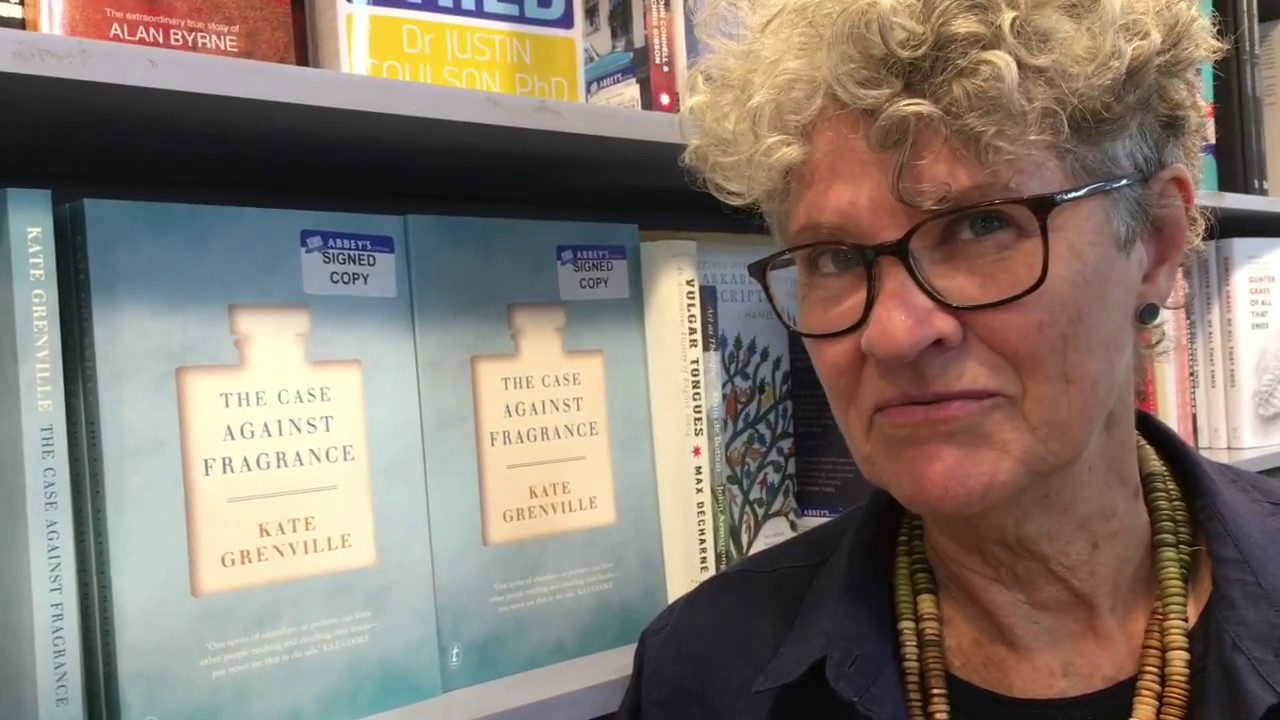The Case Against Fragrance
Kate Grenville, 2017

In this book, Australian author Kate Grenville looks at fragrances - present in everything from perfumes to deodorants to dish soap to scented garbage bags, and examines the evidence - or lack thereof - for their safety.
Kate points out that nearly 17% of the population has some fragrance sensitivity that results in breathing difficulties and other health problems. And yet modern fragrances are pervasive - in everything from toilet cleaner to dish soap to fragrance dispensers to actual perfumes.
The perfume industry is self regulated so there is no reqeuirement to test or find the consequence of these compounds - which are trade secrets so their composition is never revealed to the world. The composition of fragrances also change frequently based on market demand and other factors, yet because they are never tested it is hard to know their health effects. For instance, the famous Chanel No. 5 had to have its formula changed when the original ingredients were found to be carcinogenic. Yet most brands rarely come under any kind of scrutiny for their health effects.
A fragrance contains many hundreds to thousands of compounds - and the effect of these individually, let alone in combination with each other, is not tested.
When you smell something, actual molecules of that thing go up your nose.
The self-regulated perfume industry publishes (non-binding) guidelines on how much carcinogenic compounds a product can contain. They are not banned outright, rather they can be used in concentrations low enough that if you follow the recommended maximum dose you should be fine. The problem is that if you use different items - say, a shampoo, conditioner, moisturuser, deordorant - each of which individually is not harmful when used in the correct dose - could still in aggregate exceed the recommended dose. A lot of beauty products in particular release formaldehyde in contact with air which is extremely harmful.
Modern fragrances are not made in a natural way. Once the fragrant compounds are identified, they can be isolated and used in concentrations that could never occur in nature, and used without all the accompanying chemicals that would accompany a natural fragrance. For instance, the essential oils of rose made artificially smells like a rose but does not contain the hundreds of chemicals in natural rose essential oils and the effect of the missing chemicals are not known - for instance some of them may have neutralising effects that eliminate the harmful effects of essential oils. And the perfume industry uses almost exclusively artificial oils which are hundreds of times tlcheaper than natural ones.
There is no evidence essential oils are good for you but there is evidence that some essential oils are bad for you, since essential oils are not inherently natural though they are made from natural ingredients. And a lot of artificial essential oils musk for example - are modified to remove undesirable properties and enhance desirable ones.
The brain desensitises to smells with exposure, it prefers novel smells to existing ones, this is likely a survival mechanism and is called olfactory fatigue. However, this means you need to use more and more scent to get the same effect as your nose sensitises.
It is not just high profile illnesses like cancer that fragrance causes. They also cause hormonal changes and some deosprays cause a spike in estrogen production. This is particularly disastrous for babies as their bodies are very sensitive to hormones, and these compounds could easily be absorbed - for example, when mommy uses a moisturiser and bavy sucks mommy's finger.
Finally, she suggests using fragrance-free products (as opposed to unscented products, which have odor neutralising products added to mask any added fragrances) for better health - and certainly making an audit of how many scented products I use in my daily life did produce a very long list.
All-in-all, a very interesting and esay to read book. Highly recommended.